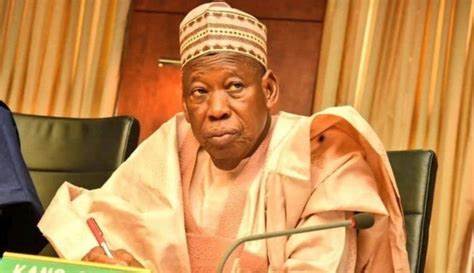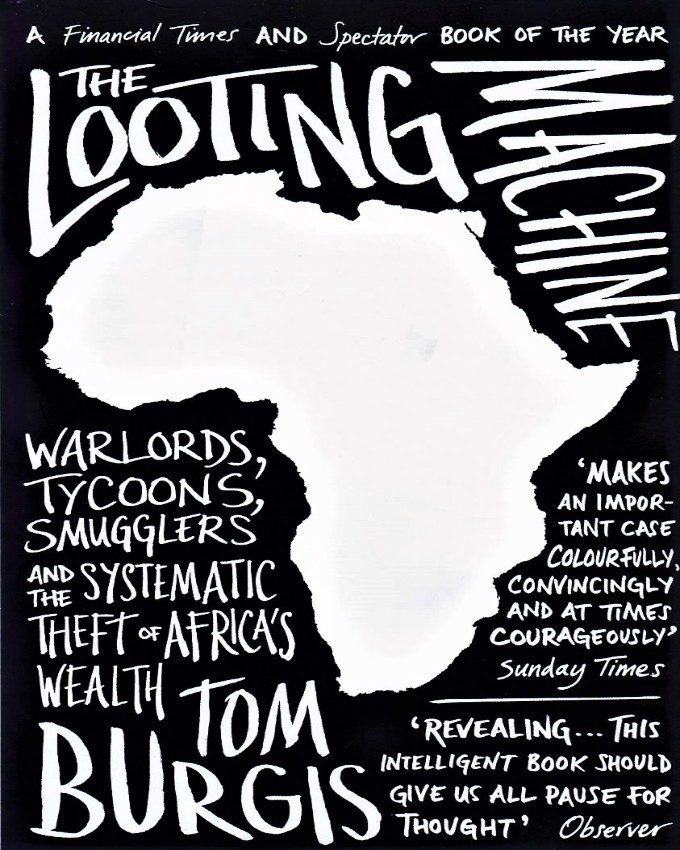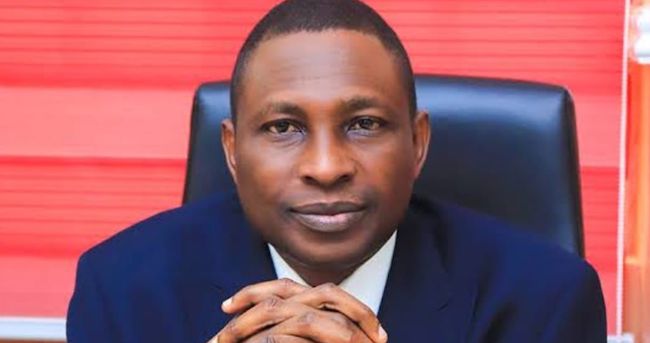Ganduje as the devil’s advocate
On Tuesday, July 16, 2024, The Kukah Centre, a social enterprise born by the cerebral Bishop Matthew Kukah, put together a conference that assembled political party chairmen and their organizing secretaries in one room. The venue was the glamorous and artistic Ladi Kwali Hall of the Abuja Continental Hotel, Abuja. The conference held a few days after the Supreme Court opened a new page in the polity. The apex judicial body had just untied the fetters of iron that bound our local governments to governors who sucked the resources that accrue to the third tier of government dry and threw the chaff into the waste bin for poor caretaker chairmen to scavenge. Nigerians could hear the clapping of hands for the Supreme Court from Aso Rock Presidential Villa, Abuja, to the islands in waterlogged creeks in Bayelsa State.
The apex court’s judgment tore to shred the argument that sustained the State and Local Governments Joint Account system and repaired with concrete plaster the section of the Constitution that opened the doorway for fraud. Under the old practice, all federal financial allocations to each state and local governments were aggregated in one basket that was constantly and consistently grabbed as a spoil by state governors. These maximum rulers in our states would feed local councils with droplets, which were neither enough for the payment of salaries nor the execution of meaningful projects. The Supreme Court judgement broke that stronghold and insisted also that the leadership of local councils must be elected, and no longer selected.

Dr Abdullahi Ganduje, the National Chairman of the All Progressives Congress (APC) and former Governor of Kano State
The panel discussion, moderated by Bishop Kukah, brought contemporary political issues to the table, namely, the Supreme Court judgement. Speaker after speaker queued behind the judgement and faulted governors whose activities made local councils irrelevant to the people, as they stifled the constitutional and developmental roles inherent in local councils. Chief Audu Ogbeh, in his cautious defence of the political class, gave anecdotes that point to the inordinate expectations of the people for politicians to press water out of stone to solve their problems. Chief Ogbeh’s intervention came with the emotional persuasion that presented corrupt politicians as victims of a society that is misguided and demanding. A section of the crowd was nearly swayed by Chief Ogbeh’s illustrations, but the categories from the civil society resisted the emotional persuasion by raising arguments cast in transparency and accountability.
Dr Abdullahi Ganduje, the National Chairman of the All Progressives Congress (APC), however, turned the tide of the debate. He emerged with three phenomena that have deflated the fight against corruption and encouraged corrupt politicians to raise their heads high instead of bowing them in shame. First, Ganduje argued that only one man, whose title is governor, could not steal funds from the treasury. There are usually permanent secretaries, treasurers, accountants, and other senior civil servants in the chain, from raising memoranda, writing cheques, forging contract documents, and giving approvals for funds to be released. The top politician argued that it was unfair to prosecute political office holders for corruption, but let go of other characters in the tragi-comedy of corruption drama; while politicians are vilified and crucified in both the court of public opinion and our law courts, civil servants munch their loots in freedom.
Ganduje argued that only one man, whose title is governor, could not steal funds from the treasury
In the same vein, the former governor defended the political class who are accused of desperation and corrupting the system to win elections. Rhetorically, he asked why Nigerians did not blame INEC, which looks the other way while the electoral processes are bastardised; or the Nigeria Police and other security agencies who do nothing to stop vote buying and electoral malpractices; or judges who collect money from politicians to deliver strange judgements; or Civil Society Organizations (CSOs) who witness frauds on the field, but produce reports that approve of election results; or electoral officers, like the National Youth Service Corps (NYSC) members, who sell ballot papers and result sheets to politicians; or delegates to parties’ primary elections who are paid handsomely by aspirants to win party tickets; or even other political institutions that play roles in the electoral process. The thrust of his argument was that in the electoral chain, diverse institutions play crucial roles; if they were not compromised, wrong persons would not be elected into power.
The third point the APC National Chairman raised, in defence of the political class, was related to Chief Ogbeh’s perspective, that Nigerians do mount too much pressure on politicians who must fund the people’s marriages, pay their children’s school fees, help them complete their private houses, support them to repair their cars, and provide funding for their sundry wants. Ganduje defended politicians with the argument that any politician who failed to source funds to rise to these demands was likely to face the threat of losing the next election. To clean up the political field of these snakes that hide under ‘stomach infrastructure,’ Ganduje advocated what he called a total overhaul of the system in Nigeria, to ensure every segment of the society played the political game according to the rules.
Ganduje defended politicians with the argument that any politician who failed to source funds to rise to these demands was likely to face the threat of losing the next election
To me, this line of thinking was not new. I encountered it while reading The Looting Machine, by Tom Burgis, a British journalist. In one of the book’s chapters, the author claimed to have interviewed a former Governor of Bayelsa State, Timipreye Sylva, and challenged him about corruption among Nigerian governors. In response, the former governor blamed the people who would mount pressure on politicians for funds that political office holders, in their capacity as private citizens, could not raise unless they dipped their hands into the public purse. Politicians have to take from the treasury to meet such needs, as a strategy for political survival, Sylva had argued.

As Dr Ganduje stood under the glistering lights of multiple cameras that struggled to capture his image and voice in those fleeting moments, the former governor exuded the air of a brutally blunt, pragmatic and shrewd politician who did not owe anybody an iota of apology for speaking against the popular opinion in the meeting room. For those schooled in rhetorical strategies, the APC National Chairman invoked the sentimental persuasive approach to provide a cover for the misbehaviour of the political class. Those who use sentiment strategy in rhetoric dodge logical, scientific, and ideological arguments, and rather produce emotional anecdotes, photographs, videos, and other media content that win the sympathy of their audience. A practical example of a sentimental argument is when a lawyer wheels his client, who is standing murder trial, to the courtroom, with bandages from head to toe, claiming his client had suffered a stroke; his life in danger of death. The objective of the spectacle will be to win the pity of the judge who may succumb to an appeal for the adjournment of the case, or authorize the release of the defendant’s international passport to enable him to seek medical help outside the country – and hide from prosecution.
We must oppose this rhetoric that presses us deeper into the quagmire
For everyone in the political circle who violates the codes, there is a default excuse: we are all products of our society; their abuse of power, conflict of interest, shameless acts of corruption, waste of public resources, and acts of injustice… could be excused on the premise that they are Nigerians, where such violations are normal. Corrupt judges pervert justice for cash because, in the context of Nigeria, it should not be unexpected; bankers connive with Yahoo Boys to defraud their customers, because every rich Nigerian stole from the government or the organizations where they work; university lecturers extort cash from their students because that is how things work in the education system; policemen connive with terrorists, bandits and kidnappers to brutalize and extort ransom from victims because no one in Nigeria is a saint; contractors abandon projects and become rich from the contract sum because there will always be contracts to award to others. Everyone deliberately throws dirt to pollute the water which determines the survival of the country. No wonder the ailments that have plagued the country since the days of President Alhaji Shehu Shagari through General Muhammadu Buhari to the second coming of Olusegun Obasanjo, to Umaru Musa Yar’adua, then Goodluck Jonathan and the second coming of Buhari, worsen from one regime to another, making the standard of living weaker and weaker and driving the people into deeper doom and thick darkness.
Read Also: [Explainer] Why Nigeria Is Experiencing Food Scarcity
We must oppose this rhetoric that presses us deeper into the quagmire and insist on the opposite. Our predicaments do not ooze out of the lack of systems. There are enough laws, policies, and strategies in place to sail us through the adverse weather and take us to the Promised Land. We have a people problem, not a systems problem. We have a problem with our mindset, not our systems. In the preface to his book, From Third World to First World, ” Lee Kuan Yew, expressed the importance of disciplined leadership to the growth of society. The man who is the architect of prosperous Singapore put the ball for any country’s prosperity in the court of political leadership. Their commitment and discipline to the implementation of policies and the achievement of results, not to excuses for failures, remains the path of social and economic development. He says: “We cannot afford to forget that public order, personal security, economic and social progress, and prosperity are not the natural order of things, that they depend on ceaseless effort and attention from an honest and effective government that the people must elect.”
Corrupt politicians will not mount the saddle of leadership if judges reject thunderous bank alerts in foreign currencies
Here, we are bewitched by hypocrites who claim to be leaders but rather feed fat on errors, greed and naked corruption. The country’s democracy will produce better leaders if INEC shuns corruption and conducts elections in line with the tenets of the Electoral Act. Corrupt politicians will not mount the saddle of leadership if judges reject thunderous bank alerts in foreign currencies; electoral violence will fade away if the Nigeria Police reject inducement by politicians, but rather prosecute those who falsify election results. There will be money for social development in our states if governors resist the pressure to share government funds among lackeys. Our politicians, most of them students of power, have read the biographies or autobiographies of great politicians who have turned around their countries from misfortune to fortune. None of such great names achieved great feats through compromises; they did by swimming against the tide. Unless Nigerian politicians imitate such shining examples and summon the discipline to say ‘No’ to the devil, our journey to the Promised Land may end up in forlorn hope because we will be swirling in the desert full of snakes, scorpions, Gila monster, deathstalkers, kingsnakes, pit vipers and other serpents and scorpions.

The Chairman of the Economic and Financial Crimes Commission (EFCC), Mr Olanipekun Olukoyede.
Sign up for The Insight Newsletter
Get in-depth, research and data-based interpretative reports from around Nigeria.



